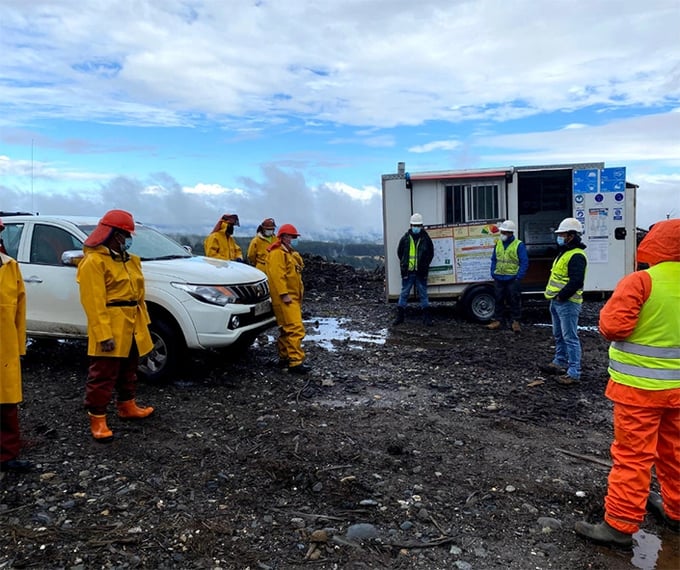The ability to work offline is critically essential to Field Services organizations. Many companies find themselves working in remote areas that lack cellular connectivity. Their field workers are generally enabled with software to use in the field - such as Field Services Management (FSM) or Digital Forms tools.
These tools often provide an “offline mode” to enable this - but not all “offline modes” are created equal.
In fact, there are three broad different ways that FSM/Digital Forms software works “offline,” - but only one that truly solves the problem in a user-friendly and scalable way.

FIRST IN, FIRST OUT - HOPEFULLY
The most common version of offline uses the simple premise of “first in, first out.” When a field user loses connectivity, the software stores the data they are capturing locally. Once they get connectivity again, the data is transmitted to the cloud in the order in which it was input by the user.
This seems simple and logical enough. However, in the real world, connectivity isn’t quite so binary as described above. A user may be out of service for a portion of the job, then get one bar barely attached to a nearby tower. The data would then begin to transmit. But say “first in” was a large picture. That picture may not make it to the cloud before connectivity is lost again. Meanwhile, it will drain the user’s battery while it tries. And worst of all, the likelihood of the system crashing during this process is high - not to mention the possibility that some files don’t get transmitted completely, leaving gaps in the data provided to the back office.
Overall, this approach is rife with problems. It was an ok first-order solution to the problem some years ago, but field services organizations are learning that there is a better way.
DON’T FORGET TO PRESS THE SYNC BUTTON
One workaround for the problems described above is to empower the user to transmit data when they are ready. They can wait to get back to solid 4G or 5G coverage or even wait until they are on WiFi. Then, they simply press “Sync” and push the data back to the cloud.
Again, simple enough in the premise. The truth is field personnel are constantly on the go. The likelihood that they forget to sync - or the reality that they simply may not have time to stop, ensure connectivity, and wait for the data to transmit between jobs - makes this solution also suboptimal.

SYNC LIKE MAGIC
The ideal solution knows not to push data when connectivity is low or intermittent - which drains battery life, raises the likelihood of transmission failures and system crashes, and raises the stress on the field worker as they’re unsure if the data is getting transmitted. The ideal solution also does not require users to remember to press “sync” - or find time to do so in the midst of their busy day.
The ideal solution syncs intelligently on its own, in the right conditions. It knows to pick files that can go in when the connectivity is low but only push larger files when connectivity and capacity are both high. And it doesn’t require users to ever think about any of this - for the field worker, it just happens - almost as if “by magic.”
FIND THE RIGHT SOLUTION FOR YOUR FIELD TEAMS
Many Field Service Management and Digital Forms solutions are on the market today. If your field teams find themselves in places with low cellular connectivity, make sure you seek out a solution that optimizes their time and energy with an intelligent - or, shall we say, “magical” - work-offline capability, such as our MagikSyncTM.
